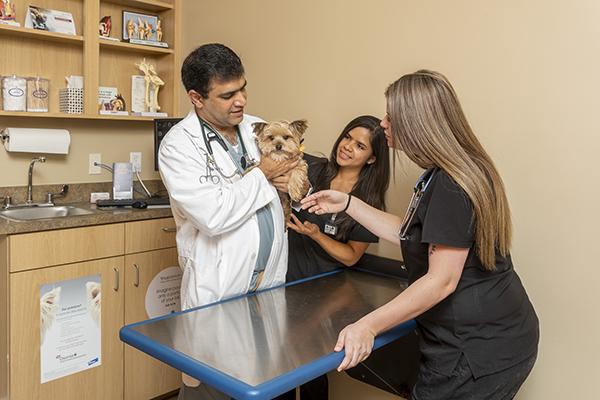
Your pet's stools can be an important indicator of their health. While we may not always want to observe our pets'
stools, paying attention to changes in their digestion can help signal if anything is wrong. Some root causes of
bloody stools are not always an emergency, but some can be a warning sign of a more serious condition.
If you have any concerns about your pet's health don't hesitate to ask a vet for further advice.
Reason #1
Parasites
Bloody stools could be caused by parasites such as giardia or intestinal worms. These parasites sometimes occur if
dishes are not thoroughly cleaned or food is not stored properly. Parasites can cause abdominal pain, diarrhea, and
bloody stools in a pet as the parasite eats away at their digestive systems.
How can I stop my pet from having bloody stools?
When a parasite is the cause of bloody stools, a vet can create a treatment plan with a parasite medication such
as fenbendazole.
Reason #2
Gastrointestinal Hemmorage
When an overgrowth of bacteria starts lining your pet's gut, this can cause a gastrointestinal hemorrhage. With this
attack on their digestive system, it could lead to a long-lasting bleeding disorder that is characterized by loose,
bloody stools.
How can I stop my pet from having bloody stools?
GI bleeding can be mild or severe. Severe cases will need to be treated by a vet with fluids or antibiotics.
Reason #3
Bacterial or Viral Infection
There are many bacteria and viruses that can cause an upset stomach in pets. For dogs in particular, the most common
infection is parvovirus. Parvovirus is highly contagious and is spread from indirect contact with feces. Symptoms
include vomiting, fever, lethargy, and bloody stools. If left untreated, parvovirus can lead to septic shock.
How can I stop my pet from having bloody stools?
If you suspect your pet has parvovirus, take them to a vet immediately before the condition worsens so your pet
can receive a fluid IV and electrolyte therapy.
Reason #4
Food Reaction
A less severe cause of bloody stools is simply a reaction to the food you are feeding them. When introducing a new
food into their diet, it's important to observe any changes in their digestionto be sure they do not have any
aversions to the new foods. Just like some humans have allergies or sensitivities, so can our pets.
How can I stop my pet from having bloody stools?
If you notice a difference in your pet's digestion after feeding them new food, avoid giving them that food again
in the future to prevent blood from showing up in their stools.
Reason #5
Cancer
One of the most serious causes of bloody stools is cancer. This is most common in pets that are older and are
displaying other symptoms such as weakness, lethargy, or difficulty with urination. When cancer cells attack the
healthy cells in the body, it can lead to weakened digestion and leave blood in a pet's stool.
How can I stop my pet from having bloody stools?
If your pet has other risk factors for cancer such as old age, always bring them to a vet for testing and
diagnostics to understand if there is a serious medical condition causing bloody stools.
Reason #6
Liver Disease or Other Disease
Liver disease, or chronic liver failure, can result in bloody stools. When blood is unable to flow through the liver
appropriately, the blood pressure rises through the vein between the liver and the gut of the animal. This increase
in blood pressure means blood is then carried through the GI system and out into the stools. Other diseases that can
cause blood in the stools are colitis and gastroenteritis.
How can I stop my pet from having bloody stools?
In cases of liver disease, a vet may recommend surgery of the liver or medications such as antibiotics to control
the infection.
When To See Your Vet
Observing the stools of your pet isn't glamorous, but it is necessary. If your pet only has blood in their stools
once after eating something unusual, there may be no need to go see a vet. However, if your pet is having bloody
stools consistently, it's important to seek immediate care and get to the root cause of their digestive troubles.
Your vet may prescribe treatment such as antibiotic therapy, fluids, electrolytes, antiparasitic drugs, or surgery.
When in doubt, always seek help from a professional.
Looking for the right veterinarian?
Contact us to schedule an appointment.
Contact us


